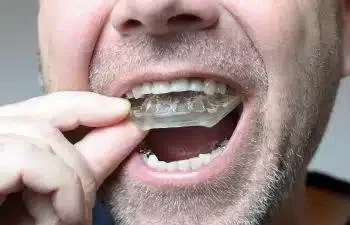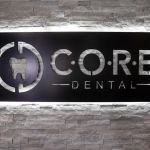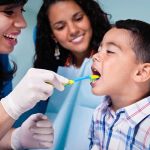
- Understanding Teeth Grinding and Its Impact
- Identifying Causes and Risks of Nighttime Teeth Grinding
- Effective Prevention Strategies for Teeth Grinding
- Professional Solutions and Recommended Products
- Real-Life Case Study: How Prevention Made a Difference
1. Understanding Teeth Grinding and Its Impact
Teeth grinding, medically known as bruxism, is a common condition that affects millions worldwide, especially during sleep. Many people experience this involuntary grinding or clenching without realizing it, which can lead to significant dental damage and discomfort. Persistent grinding can wear down enamel, cause tooth sensitivity, jaw pain, headaches, and even disrupt sleep quality. Understanding the nuances of this condition is essential to finding the best way to prevent teeth grinding at night.
Bruxism can manifest differently in individuals, ranging from mild occasional episodes to severe chronic cases that require intervention. What makes it particularly challenging is that many are unaware of their grinding until a dentist identifies the damage during routine checkups. The impact extends beyond oral health—unaddressed bruxism can affect overall wellbeing, highlighting why prevention is crucial.
2. Identifying Causes and Risks of Nighttime Teeth Grinding
Pinpointing the causes behind teeth grinding is a complex task because multiple factors contribute to this behavior. Stress and anxiety are the most commonly linked triggers, where psychological tension translates into physical clenching during sleep. For example, a working professional facing high pressure might unknowingly grind their teeth as a stress response.
Other factors include misaligned teeth or bite issues, sleep disorders such as sleep apnea, certain medications, and lifestyle choices like excessive caffeine or alcohol intake. Genetics may also play a role, making some individuals more susceptible to bruxism.
Recognizing these risks early can dramatically improve outcomes. If you notice symptoms like jaw soreness, headaches upon waking, or worn tooth surfaces, it’s wise to explore preventive strategies immediately. The best way to prevent teeth grinding at night often involves addressing these root causes comprehensively.
3. Effective Prevention Strategies for Teeth Grinding
Prevention of nighttime teeth grinding requires a multi-layered approach, combining lifestyle adjustments, behavioral techniques, and protective dental devices.
3.1 Stress Management and Relaxation Techniques
Since stress is a leading cause of bruxism, adopting effective stress relief methods can significantly reduce grinding episodes. Practices such as meditation, yoga, deep breathing exercises, and progressive muscle relaxation help lower anxiety levels. Establishing a calming nighttime routine, including limiting screen time and creating a peaceful environment, further supports restful sleep without grinding.
3.2 Dental Night Guards and Custom Mouthpieces
One of the most widely recommended solutions by dentists is the use of a night guard. This custom-fitted device acts as a protective barrier between upper and lower teeth, preventing direct grinding damage. Unlike over-the-counter options, professionally made night guards offer superior comfort and durability, tailored to your specific bite.
At Dentistry Toothtruth, patients find expertly crafted night guards that not only shield teeth but also alleviate jaw strain, significantly improving sleep quality.
3.3 Addressing Underlying Dental Issues
Correcting misaligned teeth or bite problems through orthodontics or restorative treatments can reduce the mechanical triggers of grinding. Consulting with a dental specialist can identify whether your bruxism stems from structural concerns, allowing targeted interventions.
3.4 Lifestyle Changes
Limiting stimulants such as caffeine and alcohol, especially close to bedtime, can decrease the intensity and frequency of grinding. Regular physical activity and a balanced diet also contribute to overall stress reduction, indirectly benefiting bruxism management.
4. Professional Solutions and Recommended Products
Beyond night guards, several professional treatments exist to help patients manage teeth grinding more effectively. Botox injections, for instance, have gained attention for reducing muscle activity related to bruxism in severe cases. While this approach is not suitable for everyone, it exemplifies the range of dental solutions available today.
For those looking for high-quality protective devices and tailored advice, Dentistry Toothtruth offers comprehensive evaluations and product recommendations. Their team understands that the best way to prevent teeth grinding at night varies per individual, providing personalized care plans that integrate both professional tools and lifestyle coaching.
5. Real-Life Case Study: How Prevention Made a Difference
Consider the story of Mark, a 35-year-old software engineer who struggled with intense jaw pain and damaged teeth due to nighttime grinding. Initially unaware of his condition, Mark’s symptoms worsened over two years until a dental visit revealed severe enamel wear. With guidance from Dentistry Toothtruth, he adopted stress reduction practices, received a custom night guard, and adjusted his sleep habits.
Within months, Mark noticed a remarkable reduction in jaw tension and discomfort. His sleep improved, and subsequent dental checkups showed halted progression of tooth damage. Mark’s journey highlights how combining awareness, professional intervention, and lifestyle changes represents the best way to prevent teeth grinding at night.
This case emphasizes the importance of early action and trusting expert advice when dealing with bruxism.







 CORE Dental4.0 (123 review)
CORE Dental4.0 (123 review) Brilliant Smiles Dentistry4.0 (331 review)
Brilliant Smiles Dentistry4.0 (331 review) Hurley and Volk Orthodontics - South Elgin4.0 (410 review)
Hurley and Volk Orthodontics - South Elgin4.0 (410 review) Dentist Implants Bucks County5.0 (7 review)
Dentist Implants Bucks County5.0 (7 review) All Family Dental and Braces4.0 (689 review)
All Family Dental and Braces4.0 (689 review) Polaris Dental Care4.0 (170 review)
Polaris Dental Care4.0 (170 review) The Importance of Oral Health Education During Pregnancy for a Healthy Pregnancy
The Importance of Oral Health Education During Pregnancy for a Healthy Pregnancy Best Tips for Brushing Your Teeth Properly for Healthy Gums: Essential Techniques for Oral Health
Best Tips for Brushing Your Teeth Properly for Healthy Gums: Essential Techniques for Oral Health Why Skipping Dental Checkups Can Lead to Bigger Oral Health Problems
Why Skipping Dental Checkups Can Lead to Bigger Oral Health Problems Advantages of Porcelain Dental Restorations
Advantages of Porcelain Dental Restorations How Can Diabetes Cause Tooth and Gum Problems? Preventing and Managing Oral Health Issues
How Can Diabetes Cause Tooth and Gum Problems? Preventing and Managing Oral Health Issues Healthy Habits for Promoting Good Oral Health and Hygiene: Tips for a Healthy Smile
Healthy Habits for Promoting Good Oral Health and Hygiene: Tips for a Healthy Smile